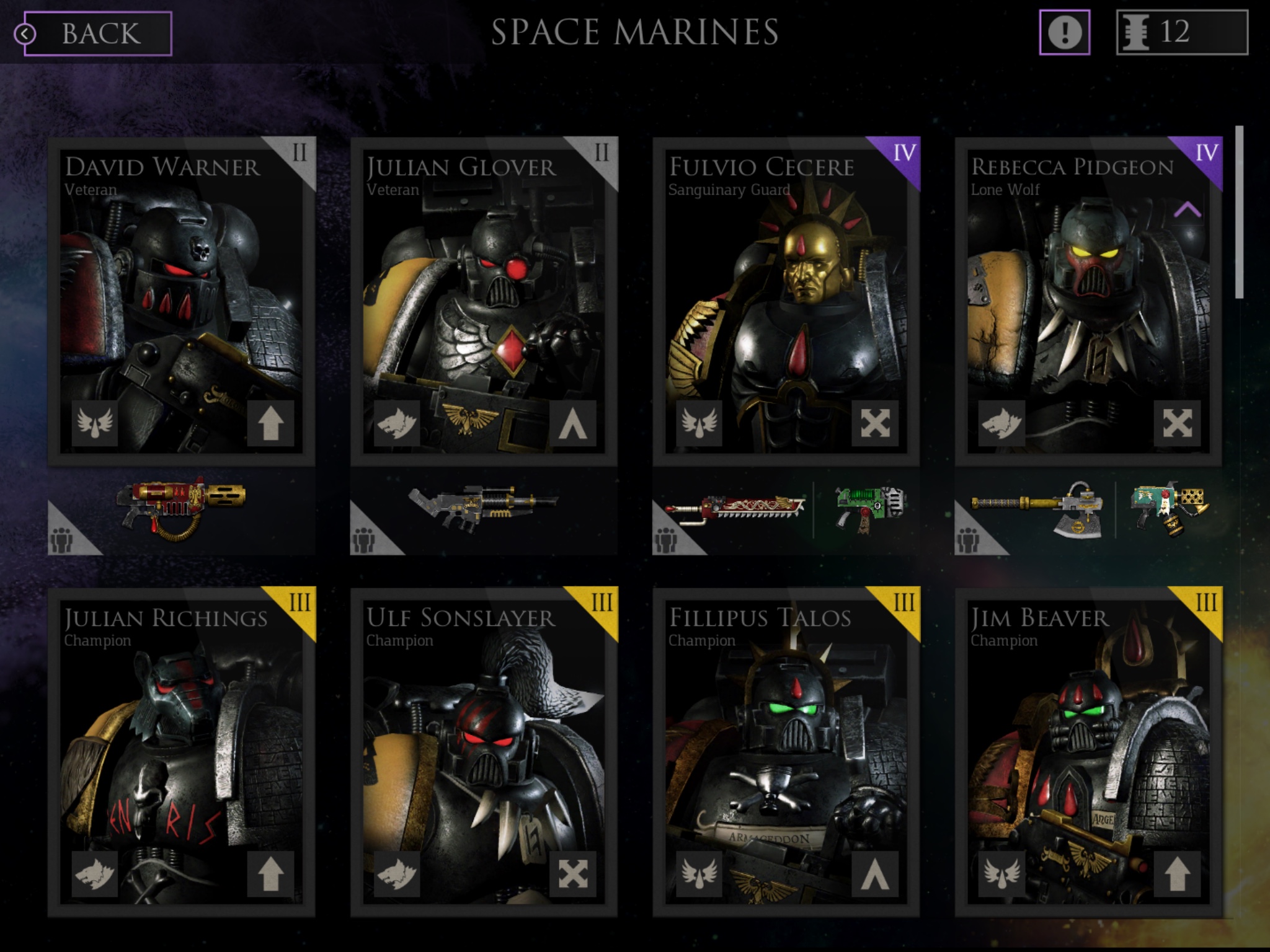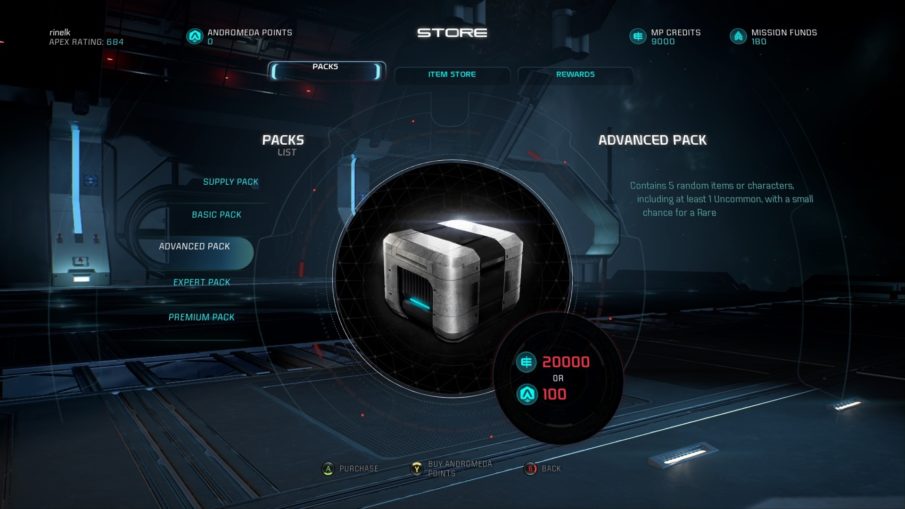After successful contributions to game designs such as Snakes and Ladders, Candyland, and Monopoly, Satan returned to our tabletops with a single element of Magic: the Gathering: the blind-buy booster pack. Disliking the random booster is roughly as popular among players as the orgasm, so it was with great surprise that I realized, some time ago, that they also have virtues I value. The game which turned me around into trying to see the good side of boosters was Rodeo Games‘ Deathwatch. Players earned boosters slowly enough in Deathwatch that you either had to be smarter than me, grind, or buy, which is exactly the sort of arrangement which would normally make me hate the developer.
I couldn’t. Rodeo took a wonderful license I’d always thought hampered by the overly narrow (and therefore tactically limiting) settings of Space Hulk and opened it up, evocatively animating beautiful models of beloved designs. It wasn’t hard to see how the game could be both marvelous and yet also hard to fund adequately with the sort of modest price we’ve come to see as “premium” on mobile. So, after I’d played a while and confirmed the value I found in the game, I chose to buy the $20 bundle. That increased my options for kitting out my squad so abruptly that it was an experience different not only in degree, but in kind, from opening a single pack, especially because I knew it was a one-time purchase.

If you open a single booster in a game like Magic or Deathwatch, you generally don’t change your strategy at all. You might improve an existing deck or squad, but you’ll be trying to use them basically the same way, with a minor tweak. Enough tweaks later, you’ll perhaps re-evaluate whether you can build something radically different, but a single pack almost never gets you there. But if you open as many packs at once as all the packs you’ve earned thus far, it’s more like switching factions completely in a game with variable player powers. And who doesn’t love variable player powers? [My guess would be…Satan? -ed.] They add variety to games with few additional rules and low memory or record-keeping, ideally shaking up the strategy enough that you can’t rely on old habits.
So, here’s my list of some things I think boosters can do well:
- Fund game development – Obvious, but important.
- Scale cost to player engagement, value, and wealth – Not only does development get funded, it gets funded most by the players who get the most value for it and who are most willing to pay. The downside of this is that some players are more willing to pay than is in their best interest, and that’s much of where the booster-hate justifiably arises.
- Identification – The choices you make in games give you responsibility for the outcomes you experience. In a game with boosters, though, you also have a pool of cards or resources which are uniquely yours; usually it’s unlikely that anyone else has exactly that set of options, so, unless there’s a highly liquid market for these assets, your outcomes are partly down to your choices, but also partly due to the unique potential of your pool. Parallels life rather well.
- Progression in power – As you play more and acquire more packs, you’ll tend to grow more successful in the game, contributing to a sense of accomplishment.
- Progression in flexibility – Along with play time and power, the number of options to consider also grows. This simplifies learning by introducing emergent complexity gradually.
- Avoidance of dominant strategies – The more people face the same challenge you do, the more likely it is that collective wisdom has settled on a small number of near-optimal ways to approach it. For players who seek that insight, the experience of authorship and responsibility for one’s chosen approach is badly compromised. By fracturing the possible strategies, boosters eliminate the incentive to submit to a consensus of players for all but the most popular games. As a result, it’s easier for strategy selection to be an expressive and creative act.
- Discovery – Because it’s possible to learn the game without encountering every asset in it, boosters leave open the opportunity for discovery of something new and surprising every time you open a pack. The inability to control the order in which players will encounter items creates a storytelling challenge for those games with flavor text intended to reveal, not just a setting, but a narrative. Putting together the pieces in the right order can be a puzzle as engaging as figuring out the intended synergies and tensions in the gameplay.

I still think that gameplay-relevant boosters are better used in single-player or co-operative games than competitive ones; paying to win isn’t the problem so much as paying to make others pay. It also seems to be almost universally positive to allow players to earn boosters through play, rather than purely with cash, and to include some means of unlocking specific items. But I’m much more inclined to now view random asset distribution (even for real money) on a case-by-case basis and not a universally negative quality for a game to have.



Start the discussion at discourse.statelyplay.com